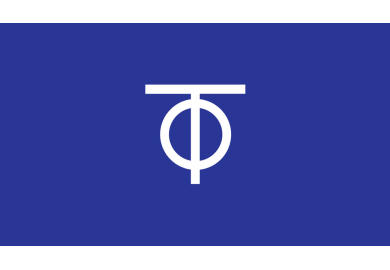ZeroTier, what is it?
ZeroTier is virtual private network (VPN) software that allows users to create and join decentralized virtual networks.
It uses a proprietary network protocol to allow remote computers to connect to each other as if they were on the same local network. It is used for network connectivity in businesses, schools and non-profit organizations.
It is also used for online gaming, remote connections and IoT applications.
How does ZeroTier work?
ZeroTier works by using a system of "nodes" to connect remote computers together. Computers that want to connect to a ZeroTier network must install the ZeroTier software on their computer, and then join a specific network using a unique "invitation code" or "network identifier."
Once connected, computers can talk to each other using private IP addresses, as if they were on the same local network. Network traffic is encrypted to protect data confidentiality.
ZeroTier also uses "relay nodes" to relay network traffic between connected computers, so computers can connect to each other even if they are behind firewalls or NAT routers. Relay nodes are computers that have been configured to accept incoming connections and relay network traffic.
Which machines are compatible with ZeroTier?
With ZeroTier, you can connect a variety of different machines, including:
- -Desktops and laptops running Windows, MacOS or Linux
- -Servers running Windows, MacOS or Linux
- -IoT devices such as surveillance cameras, connected thermostats and home automation devices
- -Wi-Fi routers and hotspots that support ZeroTier
- -Smartphones and tablets running Android or iOS
- -Virtual reality and augmented reality devices
- -Video game devices such as game consoles
It is important to note that to connect a device to a ZeroTier network, it must support ZeroTier software and must be configured to connect to the appropriate network.
Which router brands are compatible?
There are several router brands that support ZeroTier, including:
- -ASUS routers that support the ASUSWRT application.
- -DD-WRT routers , which is open source firmware for wireless routers.
- -Mikrotik routers, which support RouterOS.
- -OpenWRT routers, which is another open source firmware for wireless routers.
- -pfSense Routers, which is an open source distribution for FreeBSD-based routers and firewalls.
What are the advantages or differences with a router used as an openVPN server?
There are several advantages and differences between using a router with ZeroTier and using a router as an OpenVPN server:
- -Configuration: ZeroTier is easier to configure than OpenVPN. There is no need to manually configure certificates or encryption protocols, and configuration is generally more intuitive.
- -Seamless Connection: ZeroTier enables seamless connection between connected devices, while with OpenVPN, users must manually connect to the VPN to access remote network resources.
- -Nat traversal: ZeroTier uses "relay nodes" to relay network traffic between connected computers, so that computers can connect to each other even if they are behind firewalls or NAT routers, while OpenVPN uses NAT traversal techniques to enable connections across NATs.
- -Scalability: ZeroTier is designed to be scalable, it can connect millions of devices on a single network, while OpenVPN may be more limited in its ability to connect many devices simultaneously.
- -Mobility: Users can connect to a ZeroTier network from any device, anywhere in the world, while with OpenVPN, users must connect from a fixed location or have access to a VPN using a VPN client.
In summary, ZeroTier is easier to configure, allows seamless connection, is more suitable for connections across NATs, is more scalable and more mobile than OpenVPN. However, OpenVPN offers more control over security and encryption settings. Choosing between the two will depend on the specific needs of your network.
Also, what are the differences with a PFsense appliance?
There are several differences between using a router with ZeroTier and using a Pfsense appliance:
- - Feature: Pfsense is a comprehensive FreeBSD-based operating system that offers a wide range of features, including network security, firewall, content filtering, bandwidth management, etc. while ZeroTier is primarily designed to create decentralized private networks.
- - Control: Pfsense gives you greater control over security, encryption and bandwidth management settings. While ZeroTier offers simplified setup and seamless connection.
- - Scalability: Pfsense is suitable for small and medium networks, while ZeroTier is designed to connect millions of devices on a single network.
- - Support: Pfsense is an open source project and benefits from a large community of developers and users who can provide support and updates. While ZeroTier is a commercial service that offers technical support and updates.
- - License: Pfsense is free and open-source while ZeroTier is a commercial service that requires a subscription to use all features.
Pfsense is therefore a comprehensive operating system that offers a wide range of security and network management features, while ZeroTier is primarily designed to create decentralized private networks. Pfsense offers greater control over security and bandwidth management settings, but ZeroTier is easier to configure and provides a seamless connection. The choice will depend on the specific needs of your network.
Transform your network into a seamless, connected environment by following our ZeroTier installation tutorial, for a borderless connectivity experience.

